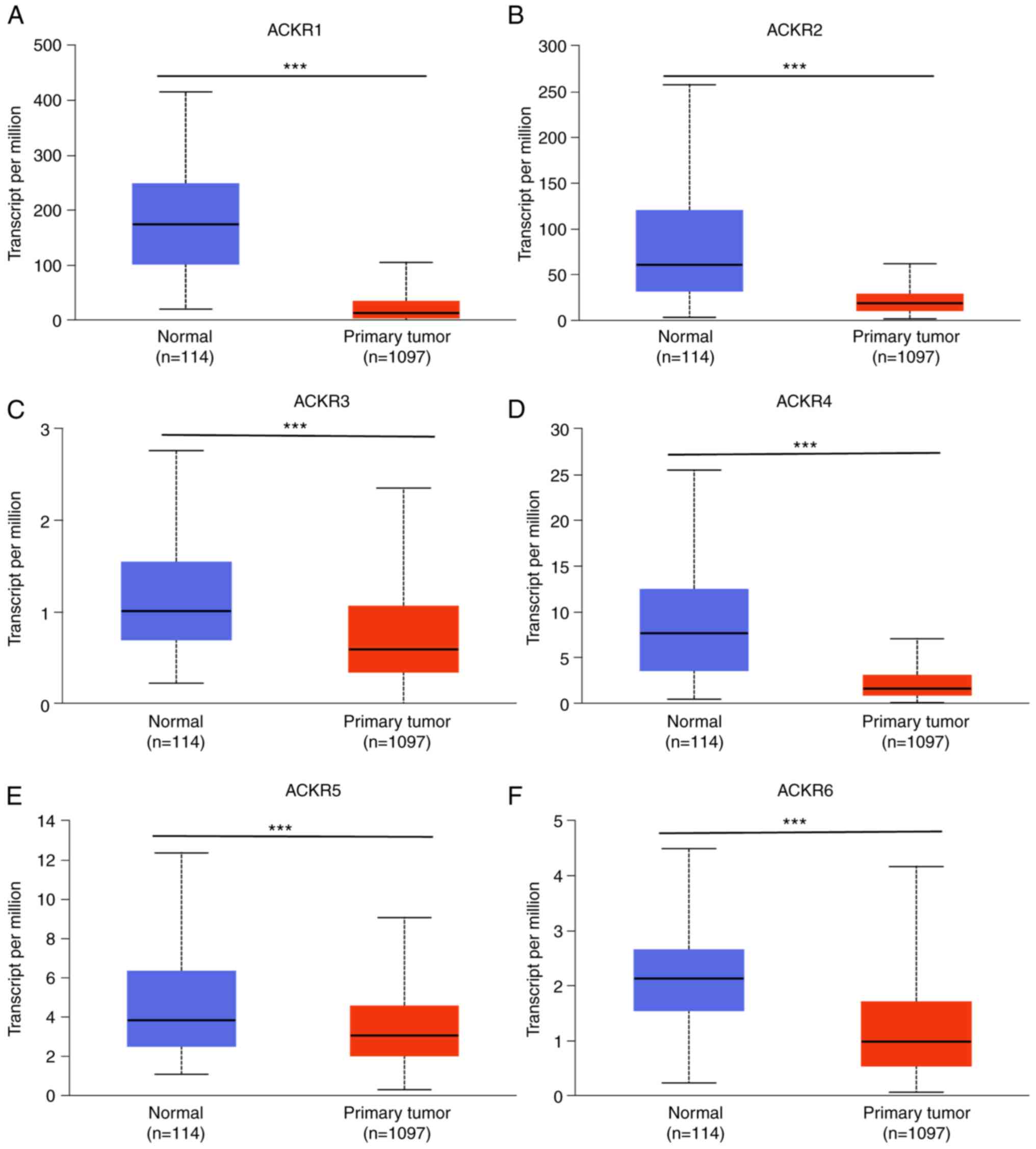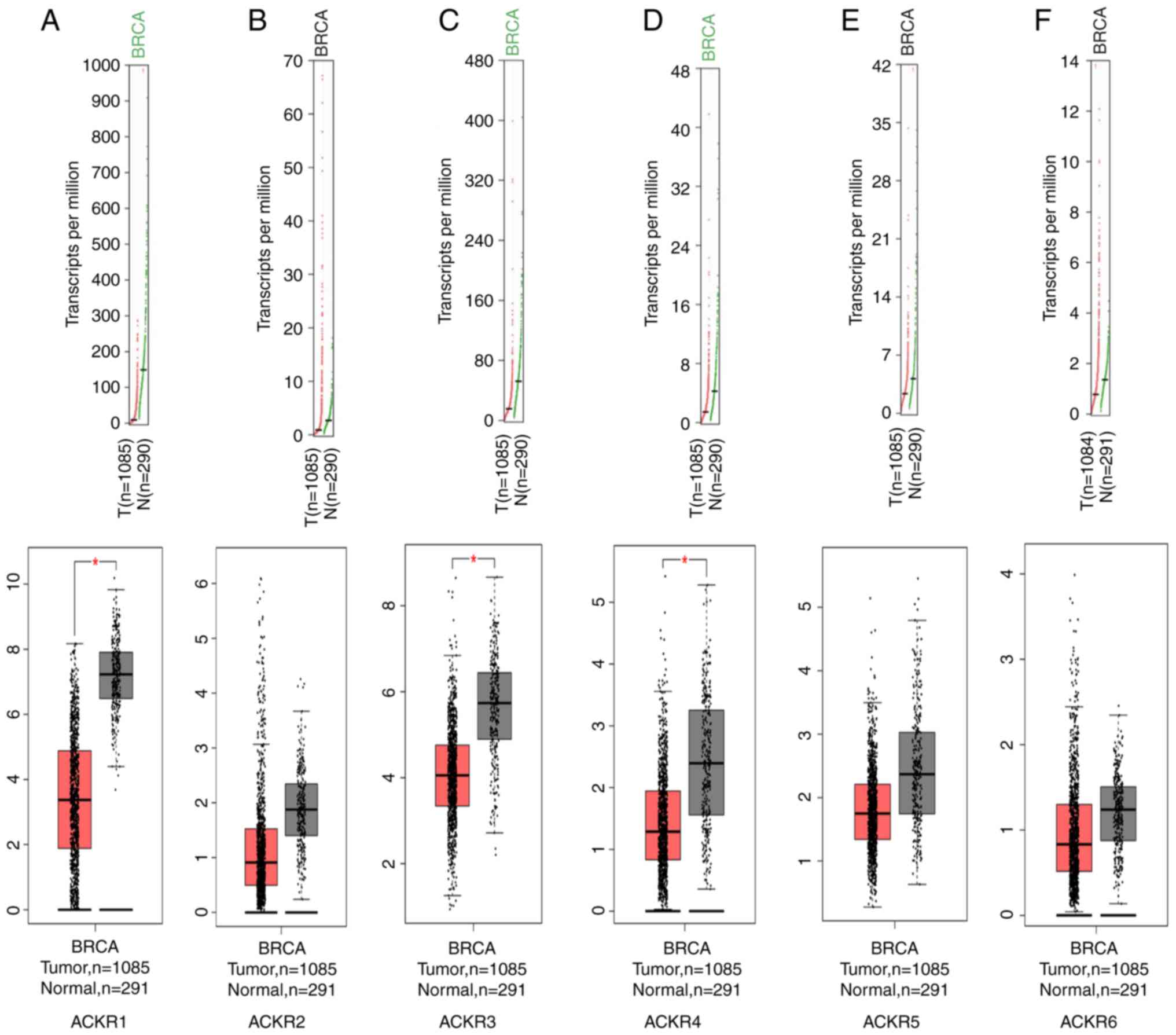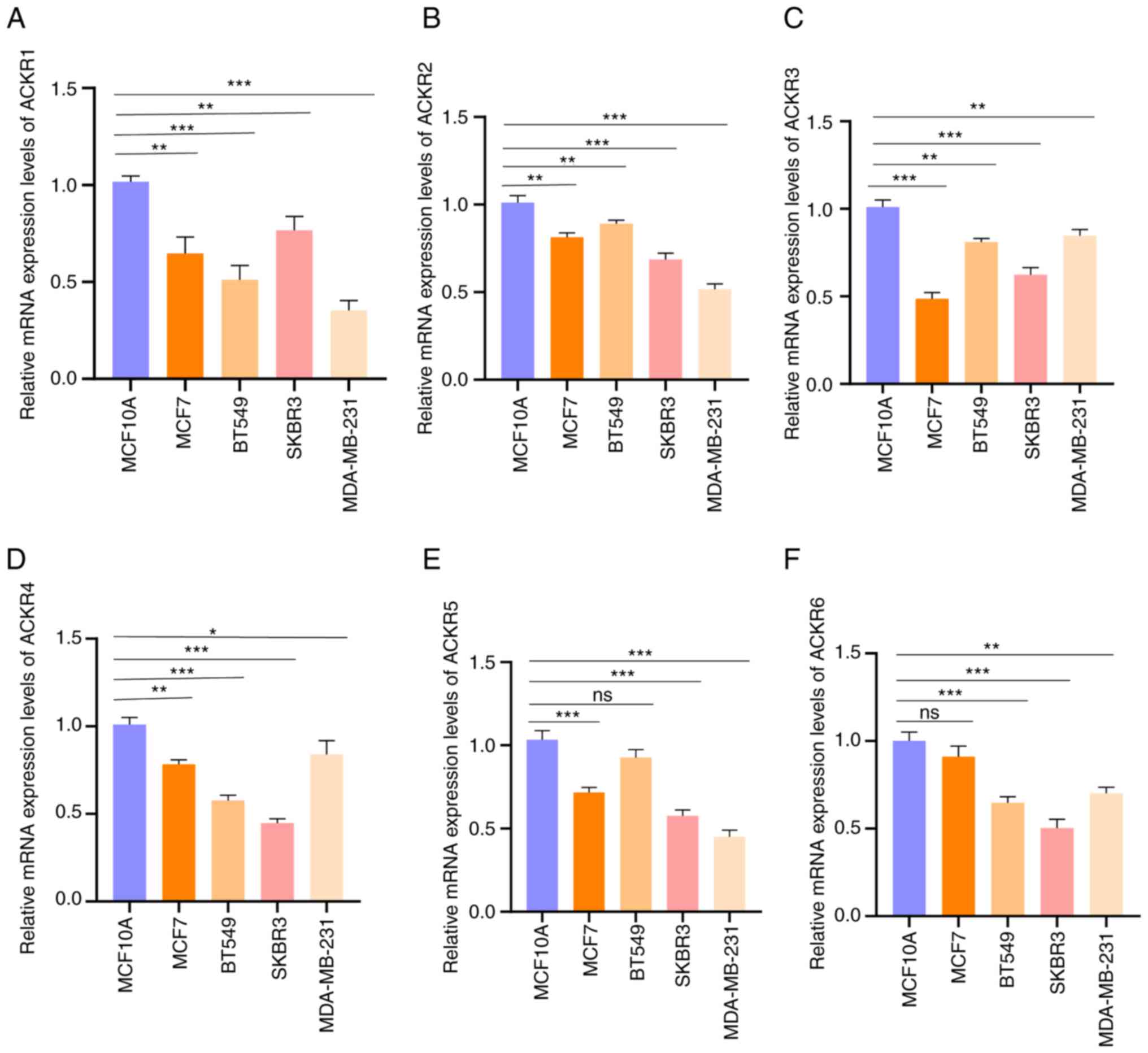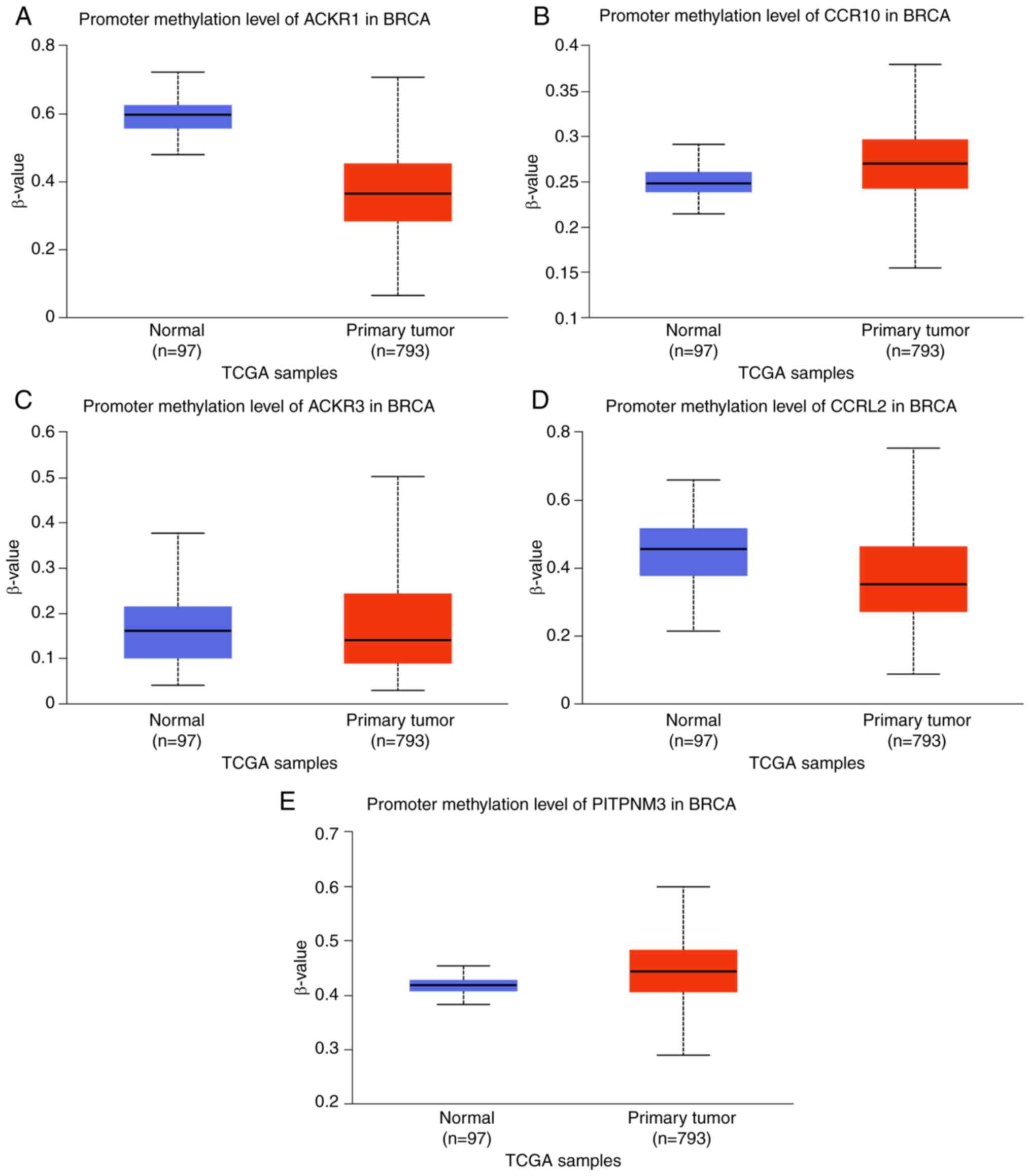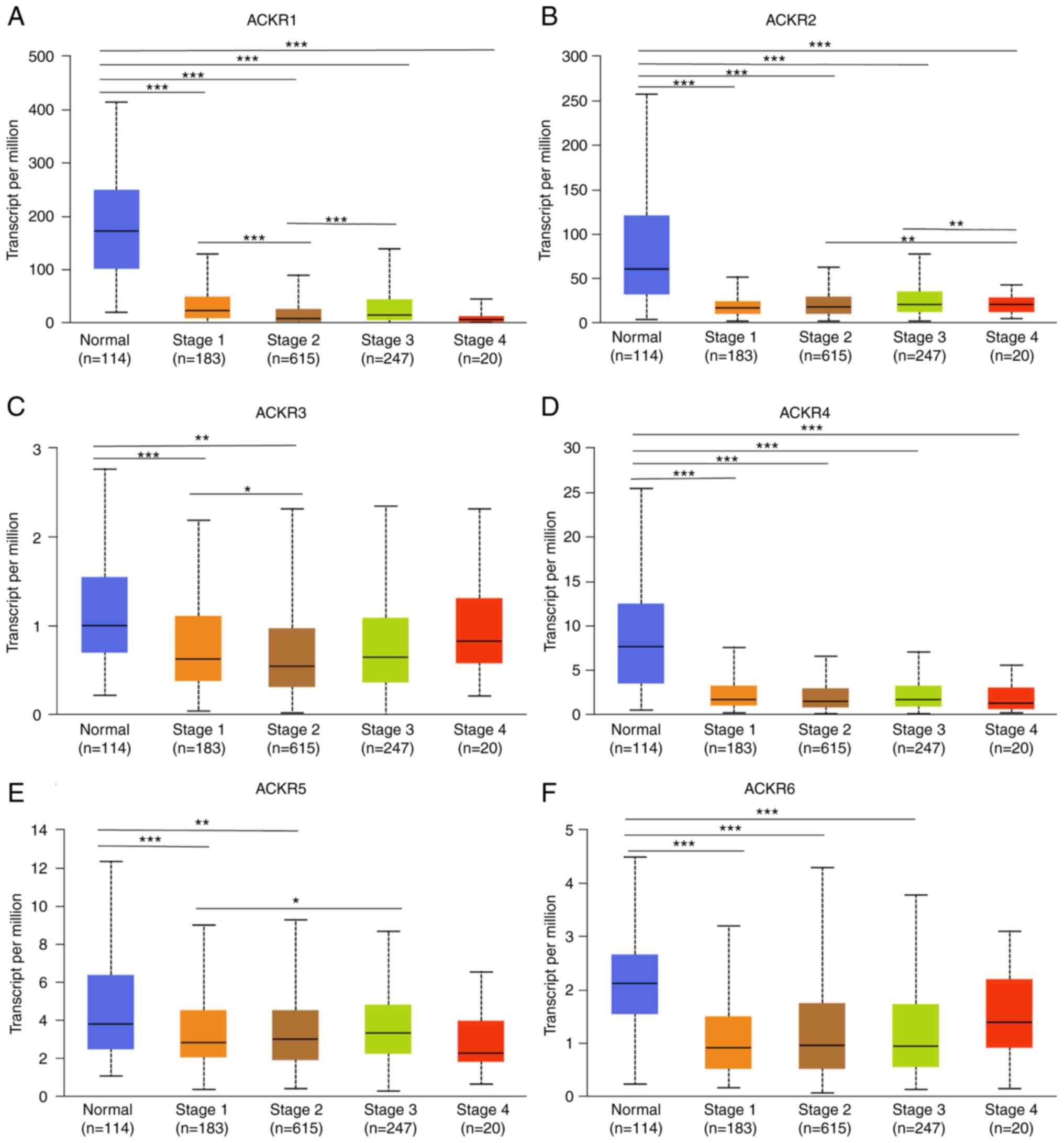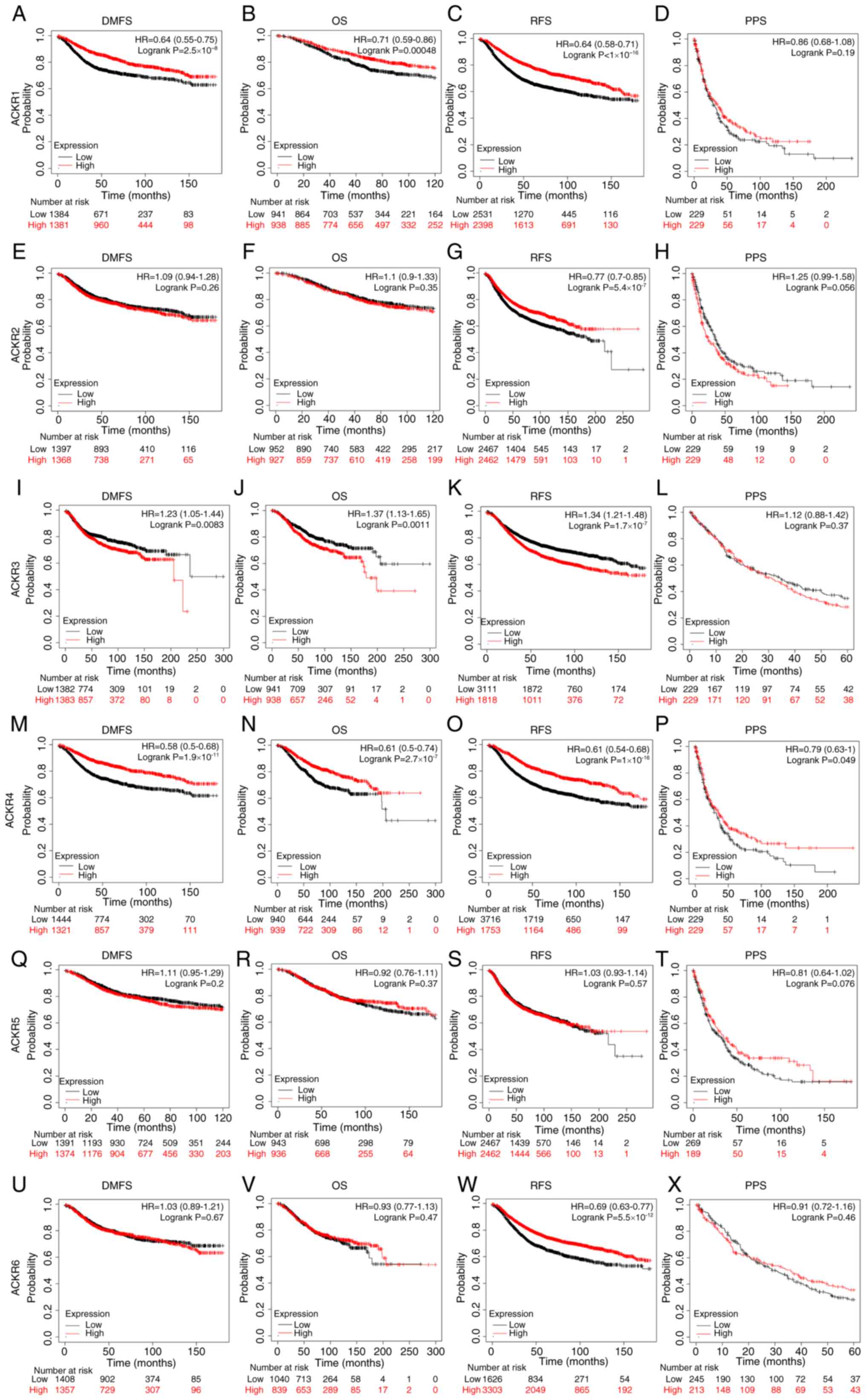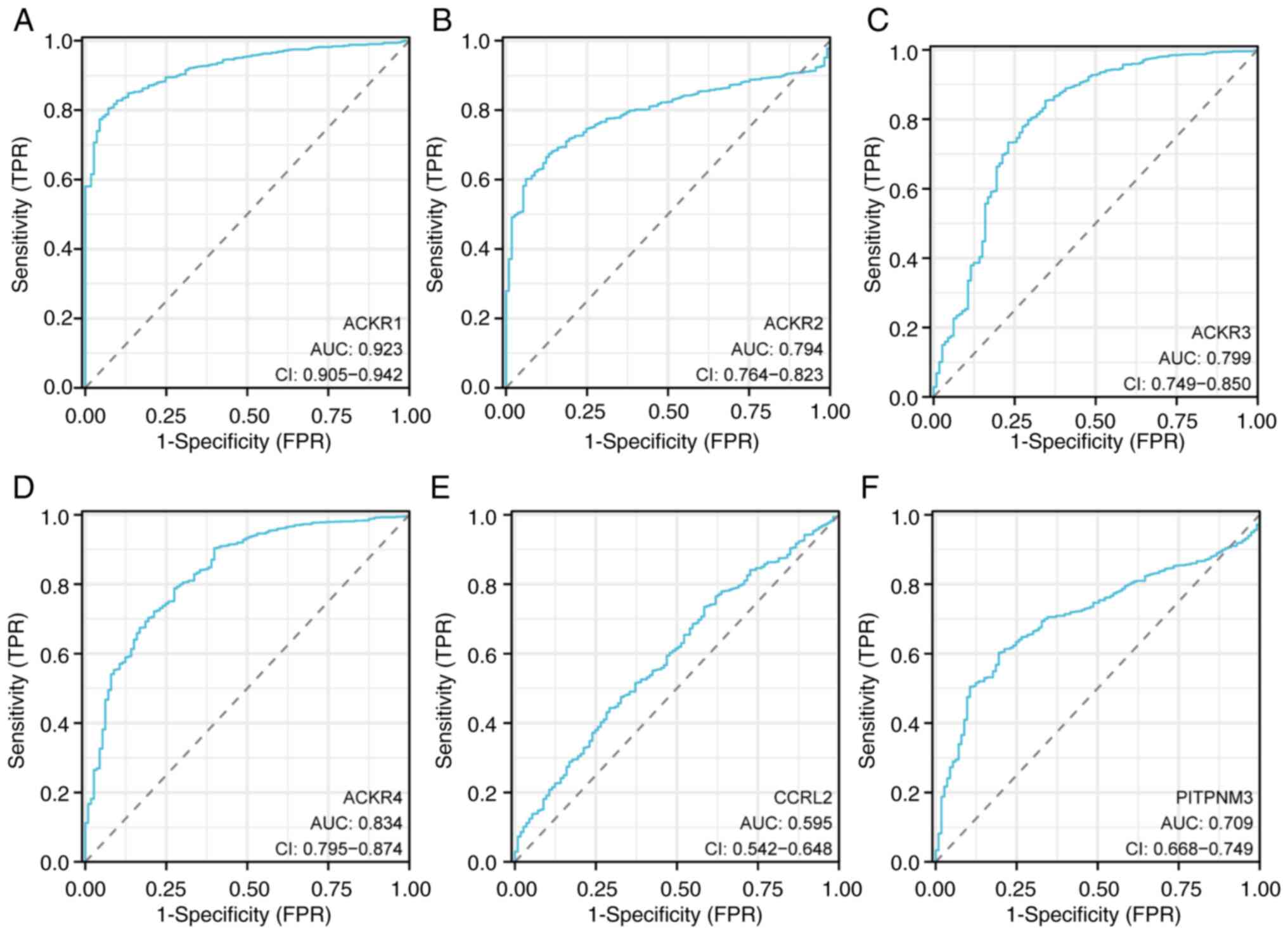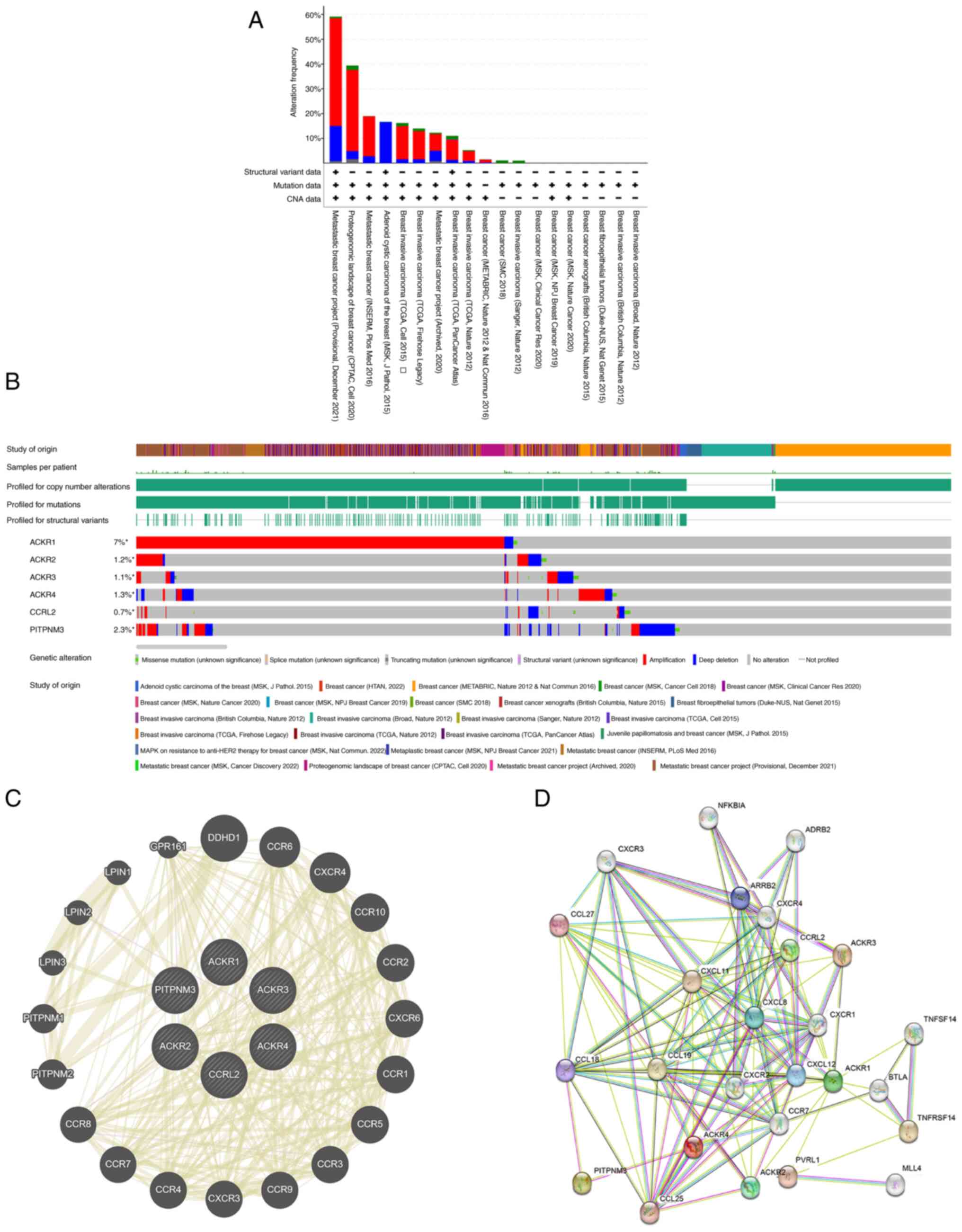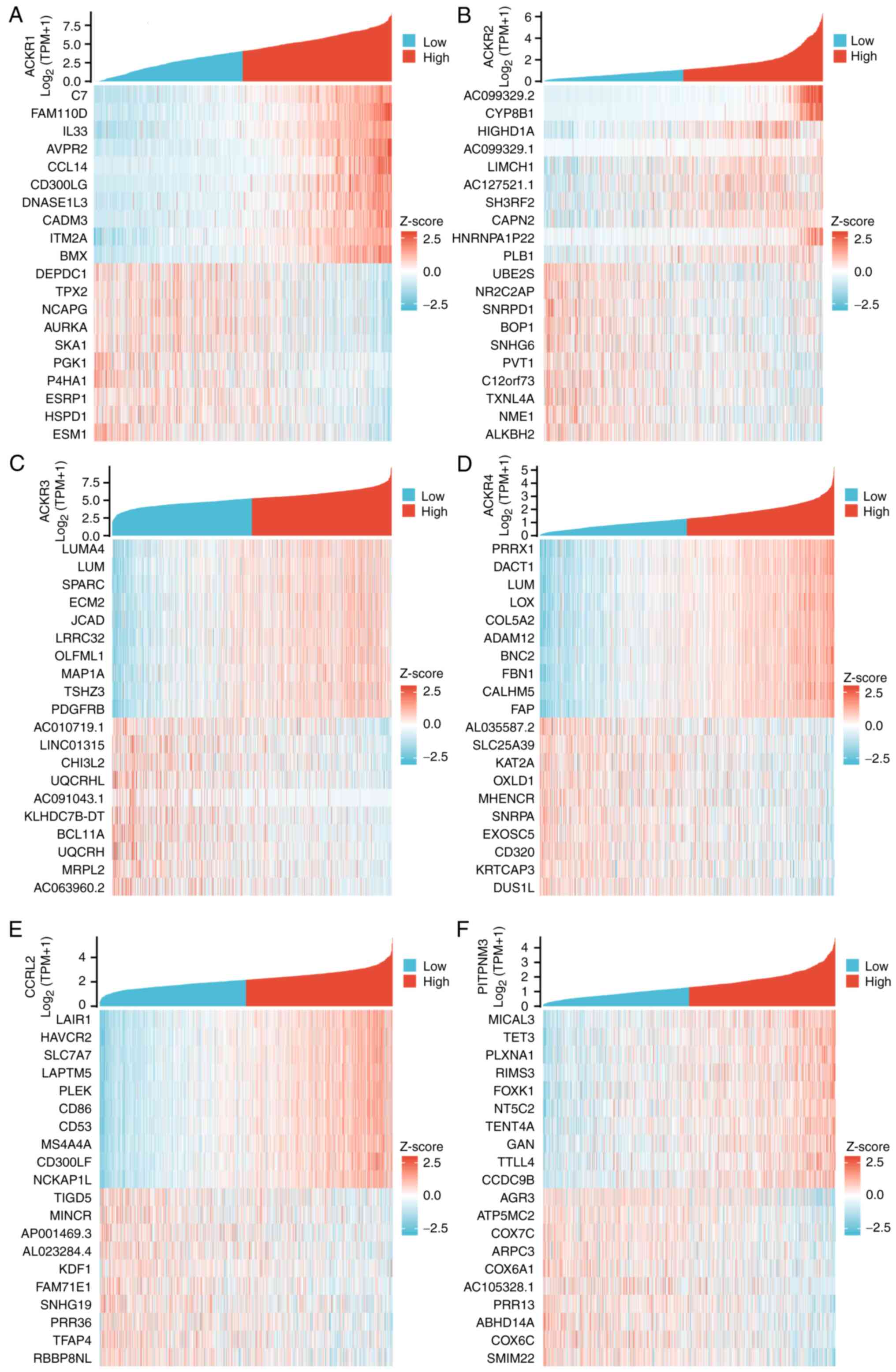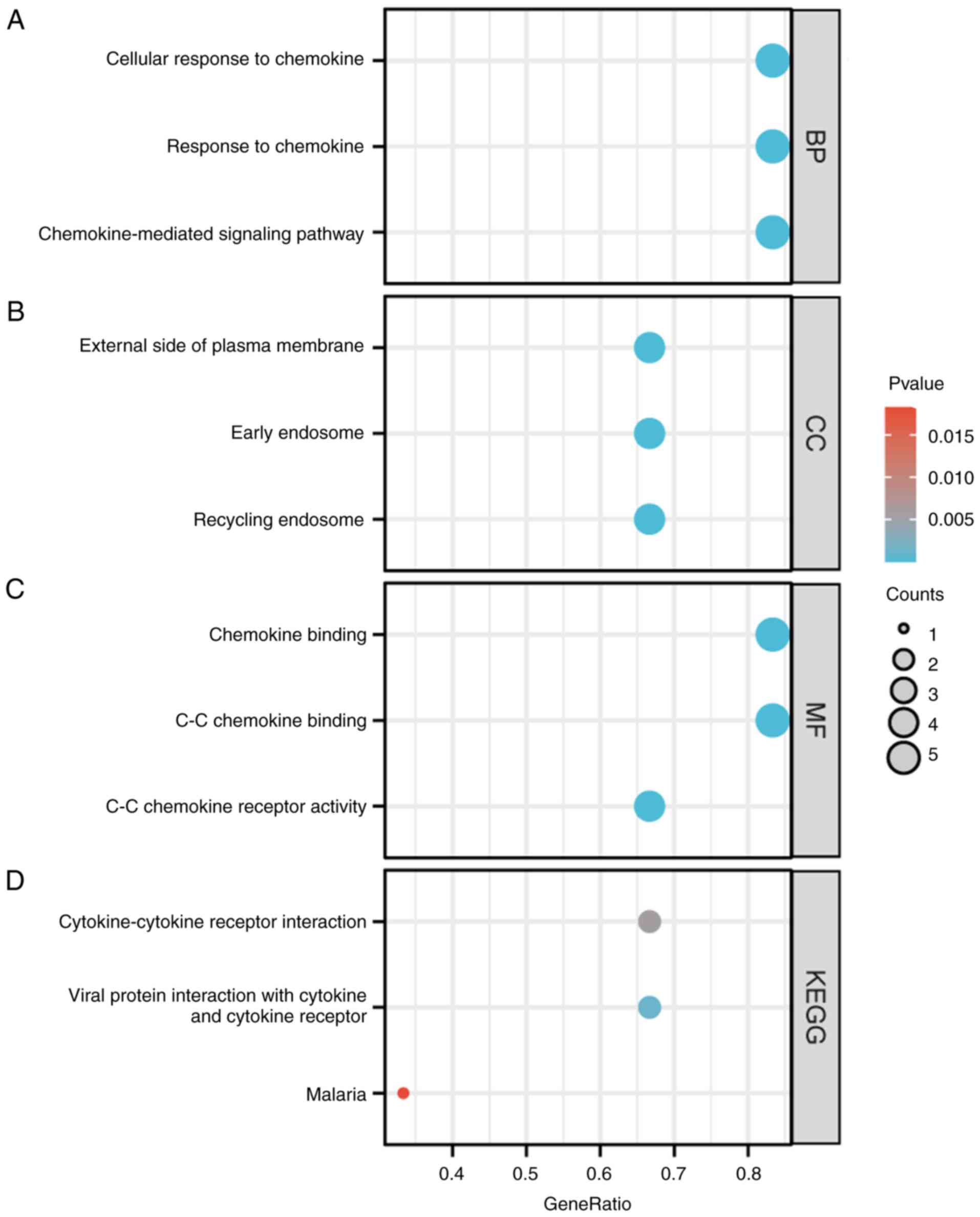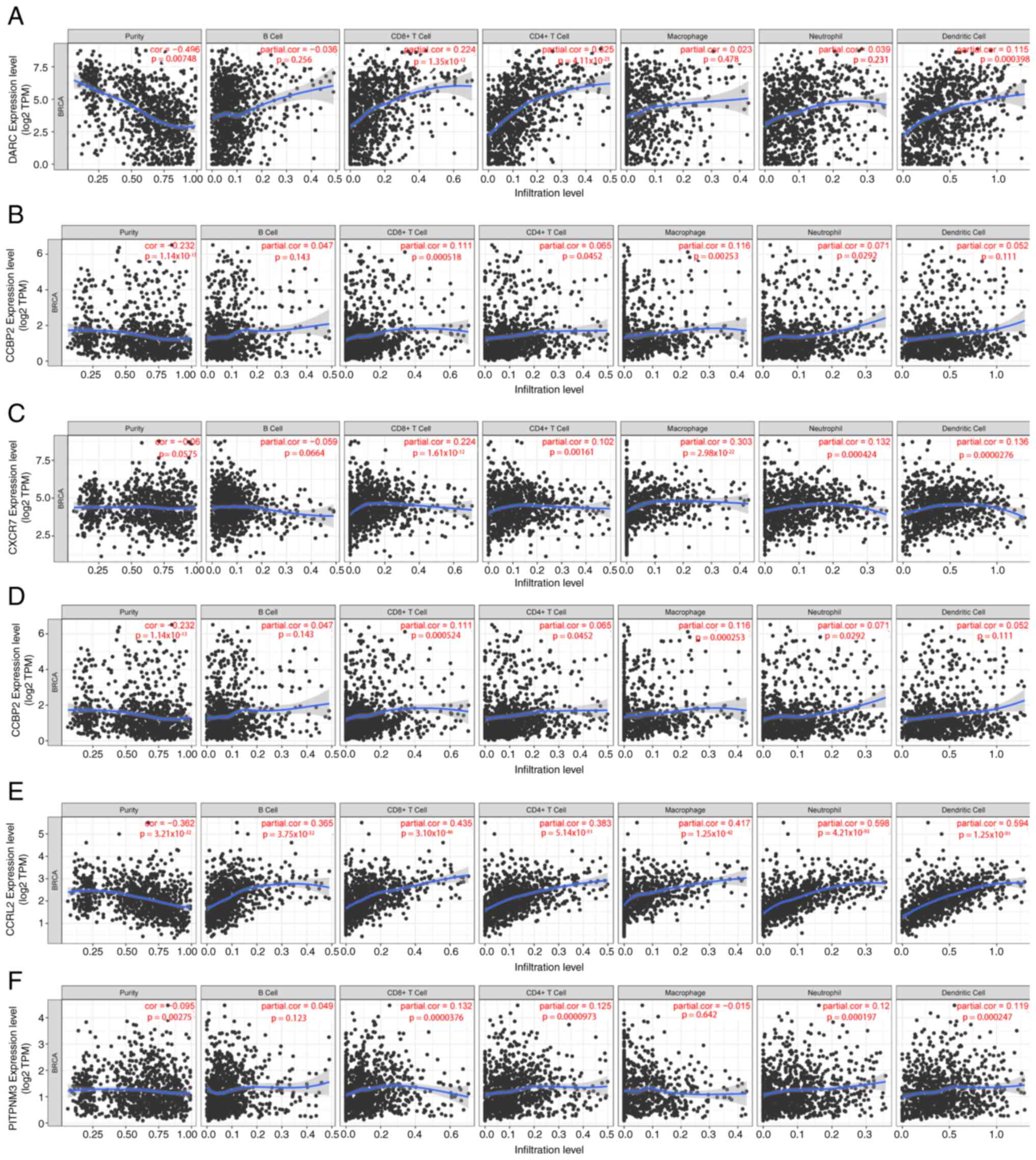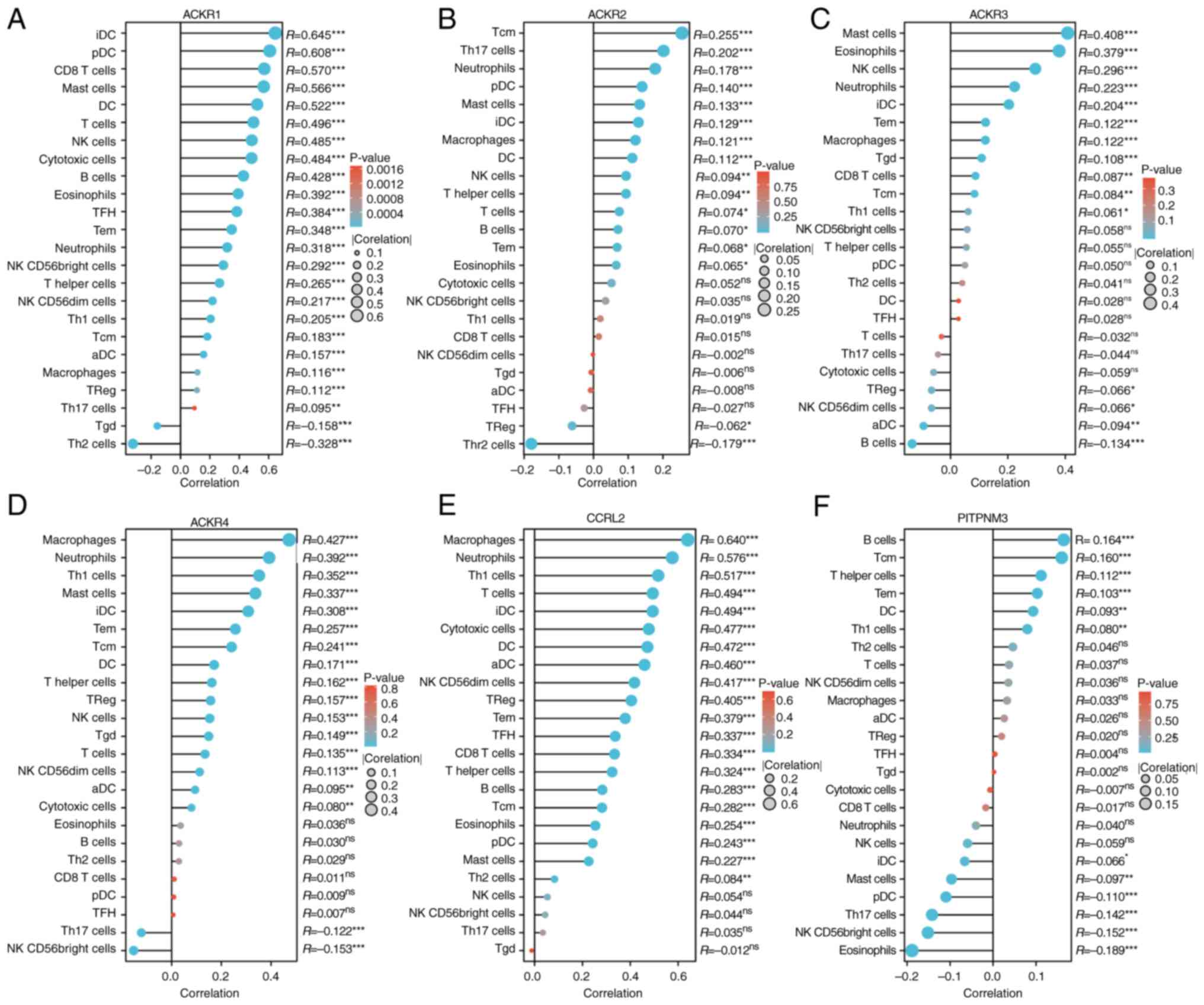|
1
|
Sung H, Ferlay J, Siegel RL, Laversanne M,
Soerjomataram I, Jemal A and Bray F: Global cancer statistics 2020:
GLOBOCAN estimates of incidence and mortality worldwide for 36
cancers in 185 countries. CA Cancer J Clin. 71:209–249. 2021.
View Article : Google Scholar : PubMed/NCBI
|
|
2
|
Stephens PJ, Tarpey PS, Davies H, Van Loo
P, Greenman C, Wedge DC, Nik-Zainal S, Martin S, Varela I, Bignell
GR, et al: The landscape of cancer genes and mutational processes
in breast cancer. Nature. 486:400–404. 2012. View Article : Google Scholar : PubMed/NCBI
|
|
3
|
Saad ED, Squifflet P, Burzykowski T,
Quinaux E, Delaloge S, Mavroudis D, Perez E, Piccart-Gebhart M,
Schneider BP, Slamon D, et al: Disease-free survival as a surrogate
for overall survival in patients with HER2-positive, early breast
cancer in trials of adjuvant trastuzumab for up to 1 year: A
systematic review and meta-analysis. Lancet Oncol. 20:361–370.
2019. View Article : Google Scholar : PubMed/NCBI
|
|
4
|
Nik-Zainal S, Alexandrov LB, Wedge DC, Van
Loo P, Greenman CD, Raine K, Jones D, Hinton J, Marshall J,
Stebbings LA, et al: Mutational processes molding the genomes of 21
breast cancers. Cell. 149:979–993. 2012. View Article : Google Scholar : PubMed/NCBI
|
|
5
|
Lischka A, Doberstein N, Freitag-Wolf S,
Koçak A, Gemoll T, Heselmeyer-Haddad K, Ried T, Auer G and
Habermann JK: Genome instability profiles predict disease outcome
in a cohort of 4,003 patients with breast cancer. Clin Cancer Res.
26:4606–4615. 2020. View Article : Google Scholar : PubMed/NCBI
|
|
6
|
Aushev VN, Lee E, Zhu J, Gopalakrishnan K,
Li Q, Teitelbaum SL, Wetmur J, Degli Esposti D, Hernandez-Vargas H,
Herceg Z, et al: Novel predictors of breast cancer survival derived
from miRNA activity analysis. Clin Cancer Res. 24:581–591. 2018.
View Article : Google Scholar : PubMed/NCBI
|
|
7
|
Shachar SS, Deal AM, Weinberg M, Williams
GR, Nyrop KA, Popuri K, Choi SK and Muss HB: Body composition as a
predictor of toxicity in patients receiving anthracycline and
taxane-based chemotherapy for early-stage breast cancer. Clin
Cancer Res. 23:3537–3543. 2017. View Article : Google Scholar : PubMed/NCBI
|
|
8
|
Duraker N, Hot S, Akan A and Nayır PÖ: A
comparison of the clinicopathological features, metastasis sites
and survival outcomes of invasive lobular, invasive ductal and
mixed invasive ductal and lobular breast carcinoma. Eur J Breast
Health. 16:22–31. 2020. View Article : Google Scholar : PubMed/NCBI
|
|
9
|
Lobbezoo DJA, van Kampen RJ, Voogd AC,
Dercksen MW, van den Berkmortel F, Smilde TJ, van de Wouw AJ,
Peters FP, van Riel JM, Peters NA, et al: Prognosis of metastatic
breast cancer subtypes: The hormone receptor/HER2-positive subtype
is associated with the most favorable outcome. Breast Cancer Res
Treat. 141:507–514. 2013. View Article : Google Scholar : PubMed/NCBI
|
|
10
|
Yang J: Lack of robust prognostic
biomarkers for immunotherapy in breast cancer-adverse events. JAMA
Oncol. 5:1639–1640. 2019. View Article : Google Scholar : PubMed/NCBI
|
|
11
|
Lokeshwar BL, Kallifatidis G and Hoy JJ:
Atypical chemokine receptors in tumor cell growth and metastasis.
Adv Cancer Res. 145:1–27. 2020. View Article : Google Scholar : PubMed/NCBI
|
|
12
|
Griffith JW, Sokol CL and Luster AD:
Chemokines and chemokine receptors: Positioning cells for host
defense and immunity. Annu Rev Immunol. 32:659–702. 2014.
View Article : Google Scholar : PubMed/NCBI
|
|
13
|
Li XX, Lee JD, Kemper C and Woodruff TM:
The complement receptor C5aR2: A powerful modulator of innate and
adaptive immunity. J Immunol. 202:3339–3348. 2019. View Article : Google Scholar : PubMed/NCBI
|
|
14
|
Nagarsheth N, Wicha MS and Zou W:
Chemokines in the cancer microenvironment and their relevance in
cancer immunotherapy. Nat Rev Immunol. 17:559–572. 2017. View Article : Google Scholar : PubMed/NCBI
|
|
15
|
Xu S, Tang J, Wang C, Liu J, Fu Y and Luo
Y: CXCR7 promotes melanoma tumorigenesis via Src kinase signaling.
Cell Death Dis. 10:1912019. View Article : Google Scholar : PubMed/NCBI
|
|
16
|
Sjöberg E, Meyrath M, Milde L, Herrera M,
Lövrot J, Hägerstrand D, Frings O, Bartish M, Rolny C, Sonnhammer
E, et al: A novel ACKR2-dependent role of fibroblast-derived CXCL14
in epithelial-to-mesenchymal transition and metastasis of breast
cancer. Clin Cancer Res. 25:3702–3717. 2019. View Article : Google Scholar : PubMed/NCBI
|
|
17
|
Whyte CE, Osman M, Kara EE, Abbott C,
Foeng J, McKenzie DR, Fenix KA, Harata-Lee Y, Foyle KL, Boyle ST,
et al: ACKR4 restrains antitumor immunity by regulating CCL21. J
Exp Med. 217:e201906342020. View Article : Google Scholar : PubMed/NCBI
|
|
18
|
Del Prete A, Martínez-Muñoz L, Mazzon C,
Toffali L, Sozio F, Za L, Bosisio D, Gazzurelli L, Salvi V, Tiberio
L, et al: The atypical receptor CCRL2 is required for
CXCR2-dependent neutrophil recruitment and tissue damage. Blood.
130:1223–1234. 2017. View Article : Google Scholar : PubMed/NCBI
|
|
19
|
Lin Z, Li W, Zhang H, Wu W, Peng Y, Zeng
Y, Wan Y, Wang J and Ouyang N: CCL18/PITPNM3 enhances migration,
invasion, and EMT through the NF-κB signaling pathway in
hepatocellular carcinoma. Tumour Biol. 37:3461–3468. 2016.
View Article : Google Scholar : PubMed/NCBI
|
|
20
|
Le Mercier A, Bonnavion R, Yu W, Alnouri
MW, Ramas S, Zhang Y, Jäger Y, Roquid KA, Jeong HW, Sivaraj KK, et
al: GPR182 is an endothelium-specific atypical chemokine receptor
that maintains hematopoietic stem cell homeostasis. Proc Natl Acad
Sci USA. 118:e20215961182021. View Article : Google Scholar : PubMed/NCBI
|
|
21
|
Yin W, Li Y, Song Y, Zhang J, Wu C, Chen
Y, Miao Y, Lin C, Lin Y, Yan D, et al: CCRL2 promotes antitumor
T-cell immunity via amplifying TLR4-mediated immunostimulatory
macrophage activation. Proc Natl Acad Sci USA. 118:e20241711182021.
View Article : Google Scholar : PubMed/NCBI
|
|
22
|
Chandrashekar DS, Bashel B, Balasubramanya
SAH, Creighton CJ, Ponce-Rodriguez I, Chakravarthi BVSK and
Varambally S: UALCAN: A portal for facilitating tumor subgroup gene
expression and survival analyses. Neoplasia. 19:649–658. 2017.
View Article : Google Scholar : PubMed/NCBI
|
|
23
|
Chandrashekar DS, Karthikeyan SK, Korla
PK, Patel H, Shovon AR, Athar M, Netto GJ, Qin ZS, Kumar S, Manne
U, et al: UALCAN: An update to the integrated cancer data analysis
platform. Neoplasia. 25:18–27. 2022. View Article : Google Scholar : PubMed/NCBI
|
|
24
|
Livak KJ and Schmittgen TD: Analysis of
relative gene expression data using real-time quantitative PCR and
the 2(−Delta Delta C(T)) method. Methods. 25:402–408. 2001.
View Article : Google Scholar : PubMed/NCBI
|
|
25
|
Li T, Fan J, Wang B, Traugh N, Chen Q, Liu
JS, Li B and Liu XS: TIMER: A web server for comprehensive analysis
of tumor-infiltrating immune cells. Cancer Res. 77:e108–e110. 2017.
View Article : Google Scholar : PubMed/NCBI
|
|
26
|
Tang Z, Li C, Kang B, Gao G, Li C and
Zhang Z: GEPIA: A web server for cancer and normal gene expression
profiling and interactive analyses. Nucleic Acids Res. 45((W1)):
W98–W102. 2017. View Article : Google Scholar : PubMed/NCBI
|
|
27
|
Gao J, Aksoy BA, Dogrusoz U, Dresdner G,
Gross B, Sumer SO, Sun Y, Jacobsen A, Sinha R, Larsson E, et al:
Integrative analysis of complex cancer genomics and clinical
profiles using the cBioPortal. Sci Signal. 6:pl12013. View Article : Google Scholar : PubMed/NCBI
|
|
28
|
Bachelerie F, Ben-Baruch A, Burkhardt AM,
Combadiere C, Farber JM, Graham GJ, Horuk R, Sparre-Ulrich AH,
Locati M, Luster AD, et al: International union of basic and
clinical pharmacology. [corrected]. LXXXIX. Update on the extended
family of chemokine receptors and introducing a new nomenclature
for atypical chemokine receptors. Pharmacol Rev. 66:1–79. 2013.
View Article : Google Scholar : PubMed/NCBI
|
|
29
|
Xiao Y and Yu D: Tumor microenvironment as
a therapeutic target in cancer. Pharmacol Ther. 221:1077532021.
View Article : Google Scholar : PubMed/NCBI
|
|
30
|
Wan W, Liu Q, Lionakis MS, Marino AP,
Anderson SA, Swamydas M and Murphy PM: Atypical chemokine receptor
1 deficiency reduces atherogenesis in ApoE-knockout mice.
Cardiovasc Res. 106:478–487. 2015. View Article : Google Scholar : PubMed/NCBI
|
|
31
|
Duchene J, Novitzky-Basso I, Thiriot A,
Casanova-Acebes M, Bianchini M, Etheridge SL, Hub E, Nitz K,
Artinger K, Eller K, et al: Atypical chemokine receptor 1 on
nucleated erythroid cells regulates hematopoiesis. Nat Immunol.
18:753–761. 2017. View Article : Google Scholar : PubMed/NCBI
|
|
32
|
Graham GJ: D6/ACKR2. Front Immunol.
6:2802015. View Article : Google Scholar : PubMed/NCBI
|
|
33
|
Hansell CAH, Fraser AR, Hayes AJ, Pingen
M, Burt CL, Lee KM, Medina-Ruiz L, Brownlie D, Macleod MKL,
Burgoyne P, et al: The atypical chemokine receptor Ackr2 constrains
NK cell migratory activity and promotes metastasis. J Immunol.
201:2510–2519. 2018. View Article : Google Scholar : PubMed/NCBI
|
|
34
|
Massara M, Bonavita O, Savino B, Caronni
N, Mollica Poeta V, Sironi M, Setten E, Recordati C, Crisafulli L,
Ficara F, et al: ACKR2 in hematopoietic precursors as a checkpoint
of neutrophil release and anti-metastatic activity. Nat Commun.
9:6762018. View Article : Google Scholar : PubMed/NCBI
|
|
35
|
Behnam Azad B, Lisok A, Chatterjee S,
Poirier JT, Pullambhatla M, Luker GD, Pomper MG and Nimmagadda S:
Targeted imaging of the atypical chemokine receptor 3 (ACKR3/CXCR7)
in human cancer xenografts. J Nucl Med. 57:981–988. 2016.
View Article : Google Scholar : PubMed/NCBI
|
|
36
|
Neves M, Fumagalli A, van den Bor J, Marin
P, Smit MJ and Mayor F: The role of ACKR3 in breast, lung, and
brain cancer. Mol Pharmacol. 96:819–825. 2019. View Article : Google Scholar : PubMed/NCBI
|
|
37
|
Smit MJ, Schlecht-Louf G, Neves M, van den
Bor J, Penela P, Siderius M, Bachelerie F and Mayor F Jr: The
CXCL12/CXCR4/ACKR3 axis in the tumor microenvironment: Signaling,
crosstalk, and therapeutic targeting. Annu Rev Pharmacol Toxicol.
61:541–563. 2021. View Article : Google Scholar : PubMed/NCBI
|
|
38
|
Ngambenjawong C, Gustafson HH and Pun SH:
Progress in tumor-associated macrophage (TAM)-targeted
therapeutics. Adv Drug Deliv Rev. 114:206–221. 2017. View Article : Google Scholar : PubMed/NCBI
|
|
39
|
Wu T and Dai Y: Tumor microenvironment and
therapeutic response. Cancer Lett. 387:61–68. 2017. View Article : Google Scholar : PubMed/NCBI
|
|
40
|
Vitale I, Manic G, Coussens LM, Kroemer G
and Galluzzi L: Macrophages and metabolism in the tumor
microenvironment. Cell Metab. 30:36–50. 2019. View Article : Google Scholar : PubMed/NCBI
|















